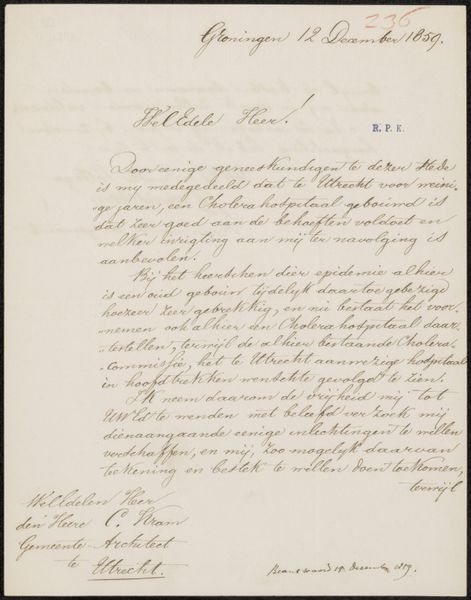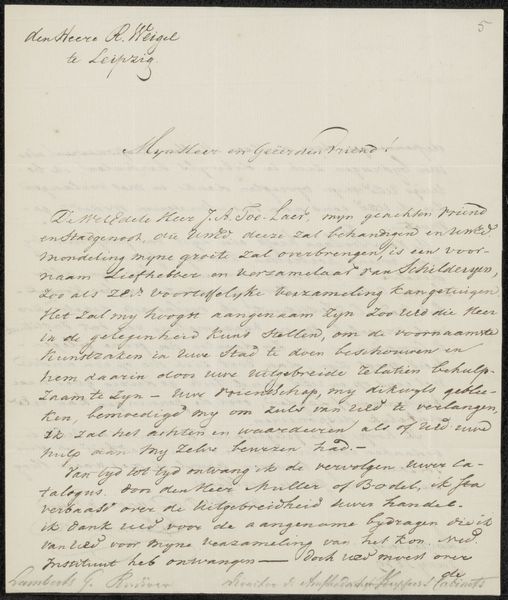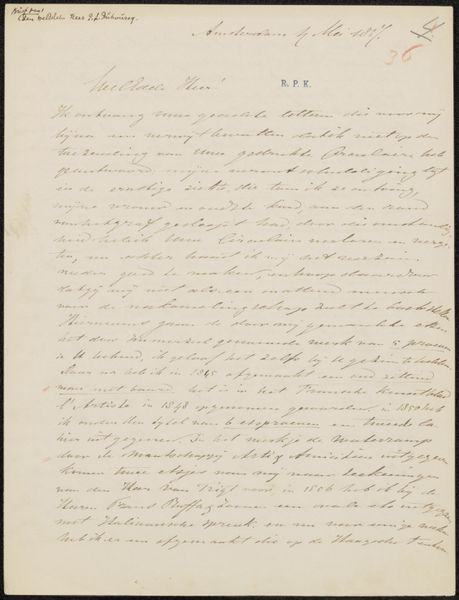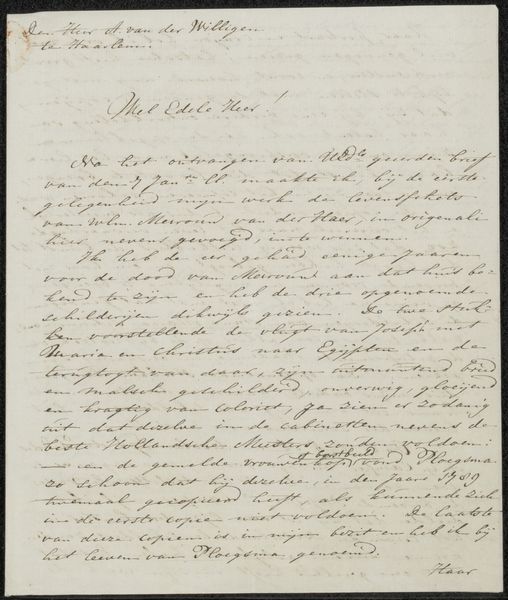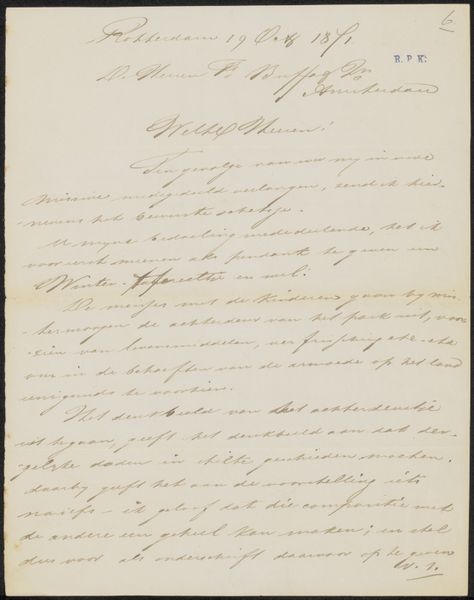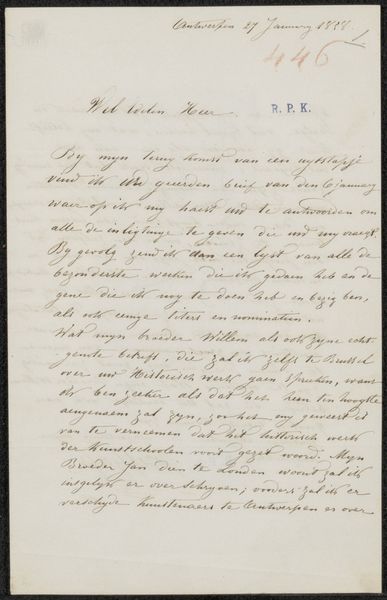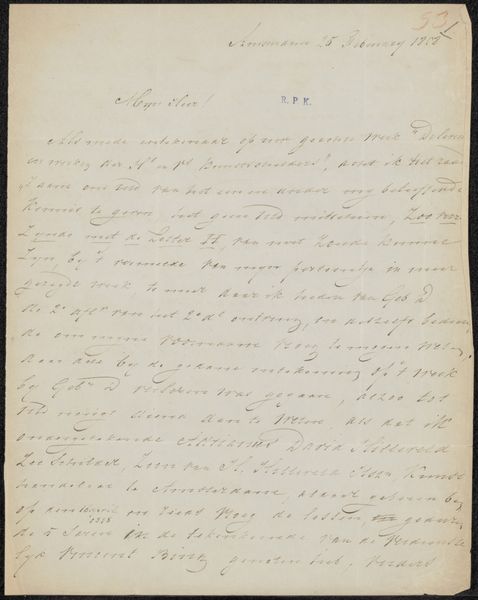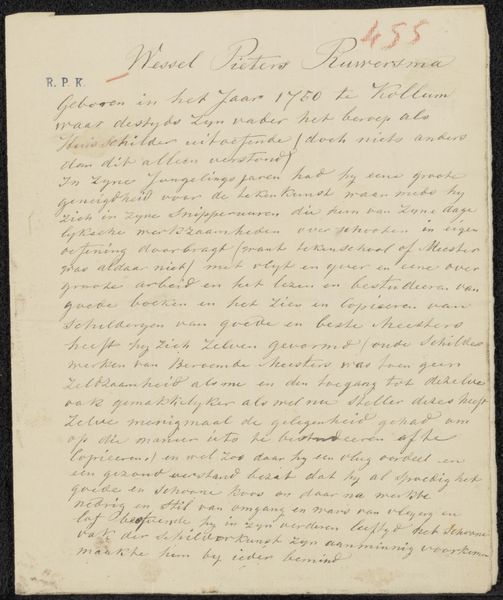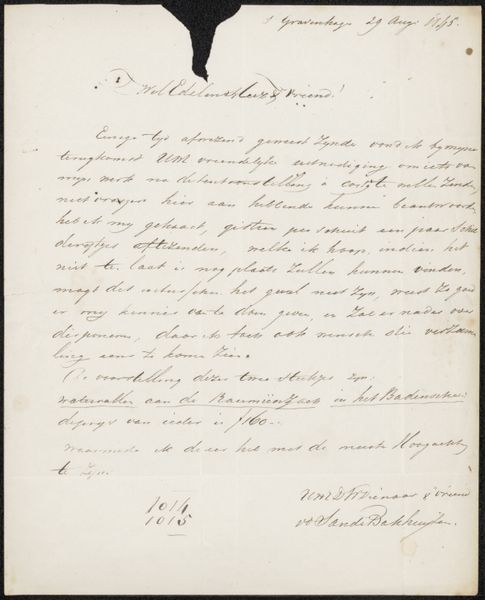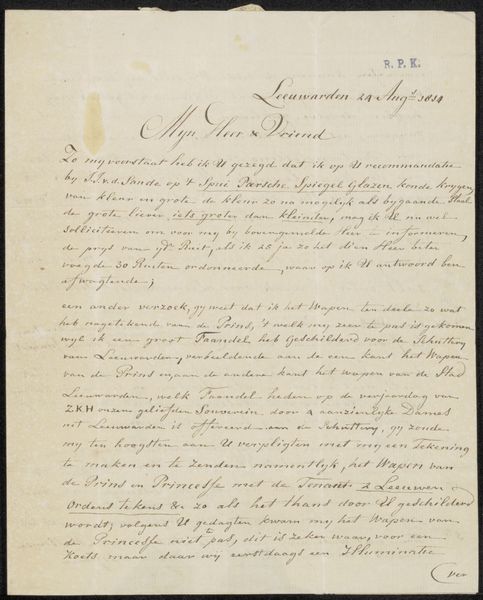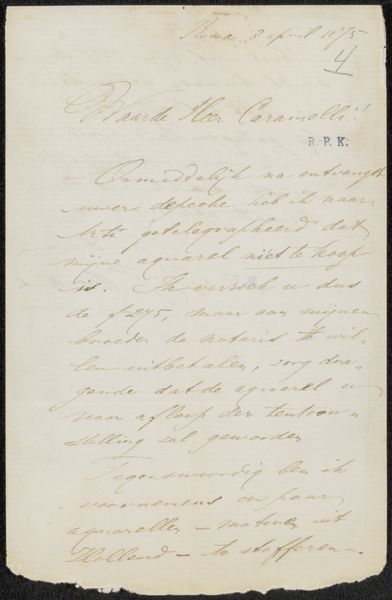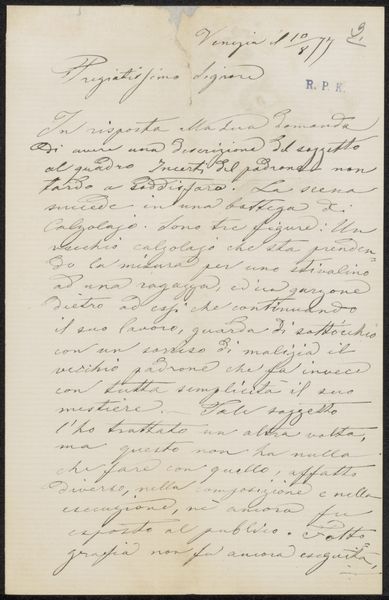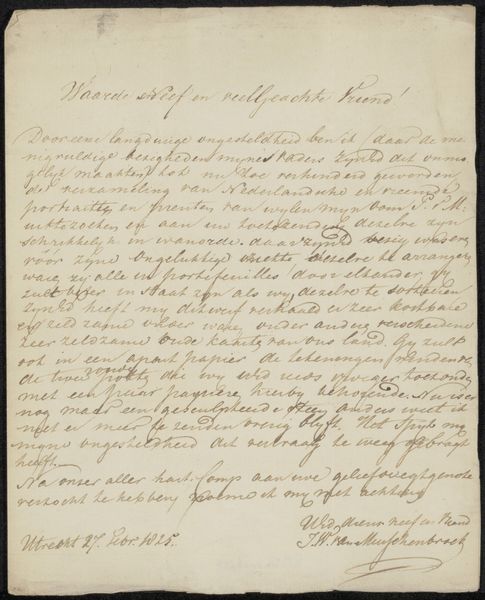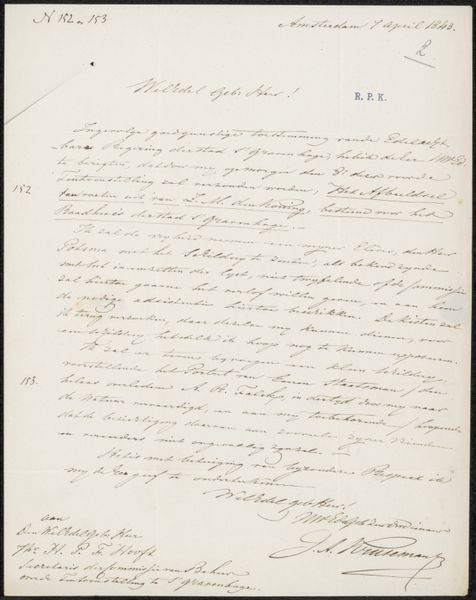
Brief aan Pieter Verloren van Themaat, secretaris van de commissie van de Tentoonstelling van Levende Meesters in Utrecht Possibly 1866
0:00
0:00
drawing, paper, ink
#
drawing
#
paper
#
ink
Copyright: Rijks Museum: Open Domain
Curator: Here, we see a letter, purportedly from 1866, titled “Brief aan Pieter Verloren van Themaat…”, a letter to the secretary of the Exhibition of Living Masters in Utrecht. It's ink on paper. What are your initial thoughts? Editor: Well, it looks like a standard formal letter, of the type that has been preserved more for historical reasons than aesthetic ones, given the everyday nature of the materials. It also gives the feel of bureaucracy! What details jump out at you? Curator: Consider the paper itself. It is aged, processed from rags, each sheet potentially bearing the trace of manual labor, a tangible connection to its own history of production and use. This material reality subverts the assumed importance of just the letter’s contents, bringing forth a material history of communication and archival practice. How does the act of preserving it complicate that? Editor: I see what you mean. By focusing on its existence as an artifact, it sheds light on a particular person's material circumstances, but is there anything about the ink that might change that view? Curator: Precisely! What type of ink was used, where did the writer source it? The script is consistent, suggesting a certain economic investment in this daily task. Notice the upper script. It’s a different hand from that in the body, implying a hierarchy in labor involved with this item. It speaks to broader dynamics of social production. Now, where does this materialist examination lead us to consider in a piece like this? Editor: So, thinking about the resources and work needed, the materials challenge a singular focus on the text's meaning alone? Curator: Exactly. By analyzing the physical letter, its materiality and the processes of its creation, archiving and intended use, we expand our understanding of the sender and its cultural and economic background in a much more direct way than traditional analysis would reveal. Editor: Fascinating, I never considered a letter could reveal so much beyond its immediate message!
Comments
No comments
Be the first to comment and join the conversation on the ultimate creative platform.
